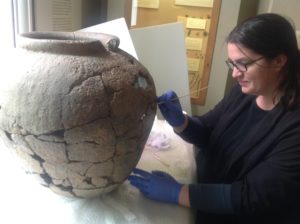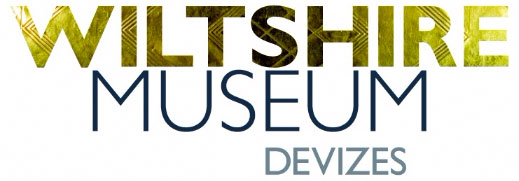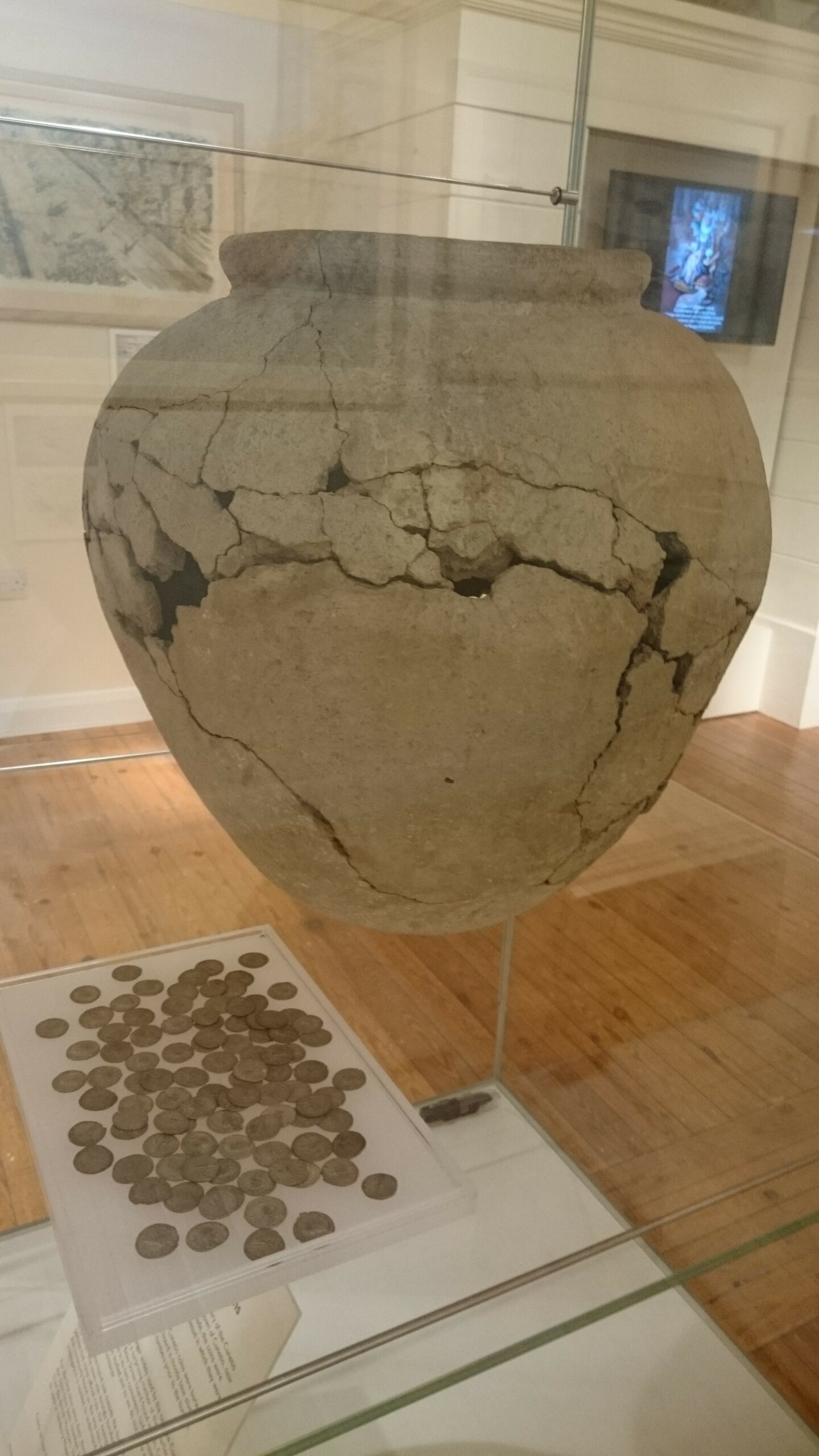The Cunetio hoard of 54,951 coins was discovered at the site of the Roman town of Cunetio, near Mildenhall in Wiltshire. In 1978, after the find was made, the coins were deposited at the British Museum and the pottery vessel in which they were concealed was put on display at Wiltshire Museum, in Devizes.
The largest hoard from Roman Britain, the Cunetio coins were buried in this large ceramic jar and a lead box. The hoard is mostly base silver radiates, which were produced in large numbers prior to the burial in around AD 274.
Although the denarius was no longer widely used by the time the Cunetio hoard was buried, it contained a surprising number of these earlier silver coins. It seems that, like the Beau Street hoard found in Bath, Cunetio was sorted before being buried in its two containers. Unfortunately it was mixed before it could be studied and so we do not know exactly which coins were in which container. The hoard was discovered by metal detectorists who did not report their find. Subsequently a brief recovery exercise was undertaken by archaeologists, including Phil Harding, who later became one of the presenters of 'Time Team'.
The location of the hoard just outside the town of Cunetio held a clue to its burial. The town was strongly fortified in the late Roman period and perhaps had some official role, for example in tax collection. Temples are also commonly found on the way into a town. An area close to the findspot was excavated by Channel 4’s Time Team in 2009 and suggests that this may have been a temple site.

Conservator Pieta Greaves cleaning the large pottery vessel that held the Cunetion hoard.
For the first time since their discovery, the ceramic jar and one hundred of the coins were reunited at the Museum in August 2018, prior to being featured in the British Museum touring exhibition, ‘Hoards: The Hidden History of Ancient Britain’, which opened at Salisbury Museum in Autumn 2018 before a nationwide tour. This was the first loan from the British Museum to the Wiltshire Museum. The Savernake Ware pottery vessel was newly conserved for display in the exhibition by Pieta Greaves of Drakon Heritage & Conservation – http://drakonheritage.co.uk/.


